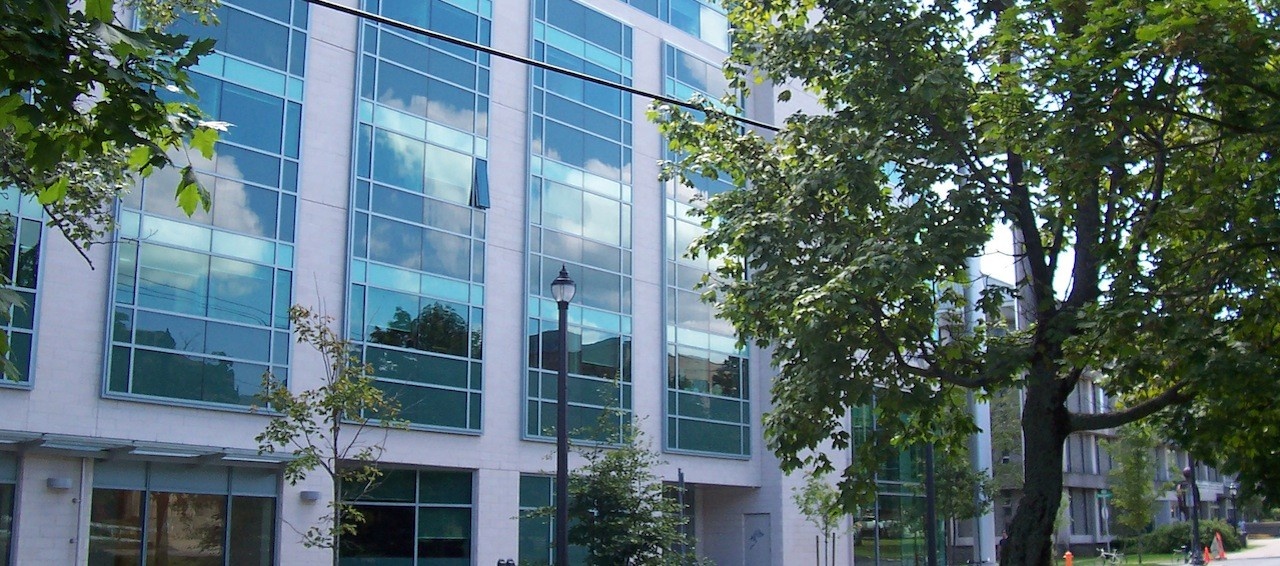News
» Go to news mainExploring Interdisciplinary Environmental Studies with Associate Professor Melanie Zurba

Associate Professor Melanie Zurba’s academic journey and research embody the interdisciplinary and community-focused ethos of the School for Resource and Environmental Studies (SRES) at Dalhousie University. Dr. Zurba’s work is deeply rooted in the social sciences and humanities, with a particular emphasis on community engagement and environmental governance. Her path to this unique niche in environmental studies is as inspiring as it is unconventional.
Dr. Zurba's initial foray into environmental studies began with an undergraduate degree in environmental biology at the University of Winnipeg. However, it was a transformative semester abroad in Australia that shifted her focus from pure biology to the human dimensions of environmental issues. At the National Marine Science Center, she studied environmental management, which ignited her interest in how human activities intersect with marine and terrestrial ecosystems.
Her master's research, conducted jointly at the University of Manitoba and the University of Queensland, focused on the development of the first Indigenous Protected Area over both sea and land jurisdictions in Australia. This groundbreaking work was life-changing and set the stage for her future endeavours. Dr. Zurba then pursued a Ph.D. with a focus on governance, collaboration, and reconciliation, particularly in the context of forestry in Northwestern Ontario. This period coincided with the release of the Truth and Reconciliation Commission report, which significantly influenced her research direction.
Dr. Zurba's current research interests at SRES are multifaceted, encompassing community engagement, environmental governance, and the emerging field of environmental humanities and arts. She works closely with equity-deserving groups, including Indigenous communities, newcomers, and youth, to enhance their involvement and leadership in environmental governance systems. Her goal is to build equity within these systems and ensure that the voices of these communities are heard and integrated into decision-making processes.
One of the key themes in Dr. Zurba's work is the development and application of methodologies that support effective community engagement. Her research employs qualitative methods such as interviews, workshops, and arts-based approaches, which are crucial for understanding the nuanced and complex ways communities interact with their environments. She also conducts secondary analyses, such as scoping reviews, to lay the groundwork for empirical research.
Dr. Zurba also connects her research to policy practice through her work with the International Union for Conservation of Nature (IUCN) where she is the Chair for Governance, Equity, and Rights within one of IUCN’s commissions. Dr. Zurba also led a review of youth engagement for the IUCN in 2022. The review, which included a series of recommendations, was embraced by IUCN and has influenced the organization’s approach to involving young people in global conservation efforts. This project underscores her commitment to practical applications of academic research, aiming to affect policy and institutional change.
Dr. Zurba’s transition from environmental biology to social science-oriented research was driven by her fascination with the human aspects of environmental issues. She realized that many environmental problems are more nuanced than most think “A lot of the environmental issues we have are actually equity issues,” [MZ1] she explains. “If Indigenous nations had more rights, perhaps our environmental problems wouldn’t be as dire.” This insight has guided her work, highlighting the importance of integrating social and biological perspectives to address complex environmental challenges like climate change and biodiversity loss.
Her interdisciplinary approach is exemplified in projects like Sustainable Nunatsiavut Futures and CANSTOREnergy. The former, in collaboration with the Nunatsiavut government, focuses on environmental changes in northern Labrador, aiming to have Inuit beneficiaries guide scientific research. The latter, a large-scale initiative supported by the New Frontiers in Research Fund, seeks to develop energy storage systems for renewable energy in communities as diverse as Hamilton, Ontario, and Yukon Territory. Both projects reflect Dr. Zurba’s dedication to ensuring that scientific advancements are aligned with community needs and cultural contexts.
SRES has provided a conducive environment for Dr. Zurba’s interdisciplinary and community-engaged research. “I was hired under the Indigenous governance stream, and my work has always been welcomed here,” she notes. The support and collaboration she has experienced at
SRES have been instrumental in her professional growth. The school’s emphasis on high-impact research and real-world applications resonates with her approach. “We want our work to have a tangible, meaningful outcome for the world,” she asserts, emphasizing the collective commitment of her colleagues to addressing the big questions of today.
Dr. Zurba’s favourite part of being at SRES is the academic freedom and support she receives to push boundaries and explore innovative approaches. This environment has allowed her to engage in non-traditional methods, such as arts-based research, and to make significant contributions to both academic knowledge and community well-being.
For prospective students considering further education in environmental studies, Dr. Zurba believes that SRES offers a unique and enriching experience. The program’s interdisciplinary nature and strong emphasis on community engagement prepare students to tackle complex environmental issues with a holistic perspective. Her advice to students is to pursue their passions and to seek out opportunities for practical engagement alongside their academic studies.
In summary, Associate Professor Melanie Zurba’s work at SRES epitomizes the integration of social sciences with environmental studies, highlighting the importance of community engagement and interdisciplinary approaches in addressing today’s pressing environmental challenges. Her research and experiences offer valuable insights into the transformative power of combining academic rigour with a commitment to equity and practical impact.
For more reading about Melanie Zurba’s Lab: https://www.communityengagedcolab.ca/
Recent News
- Dr. Andrew Medeiros named Fulbright Canada Chair in Arctic Studies
- Simon‑Luc Noël's (MES Graduate) Thesis Blog Entry Live on EIUI Website
- shalan joudry’s (MES Graduate/IDPhD Candidate) Directorial Debut to show at TIFF
- Exploring Environmental Social Science: An Interview with Dr. Kate Sherren
- Dr. Andrew Medeiros: Exploring the Frontiers of Freshwater Ecology
- A Profile of Professor Emeritus Karen Beazley
- Dr. Michelle Adams and the Role of SRES in Environmental Sustainability
- Supporting Excellence: Behind the Scenes at SRES
